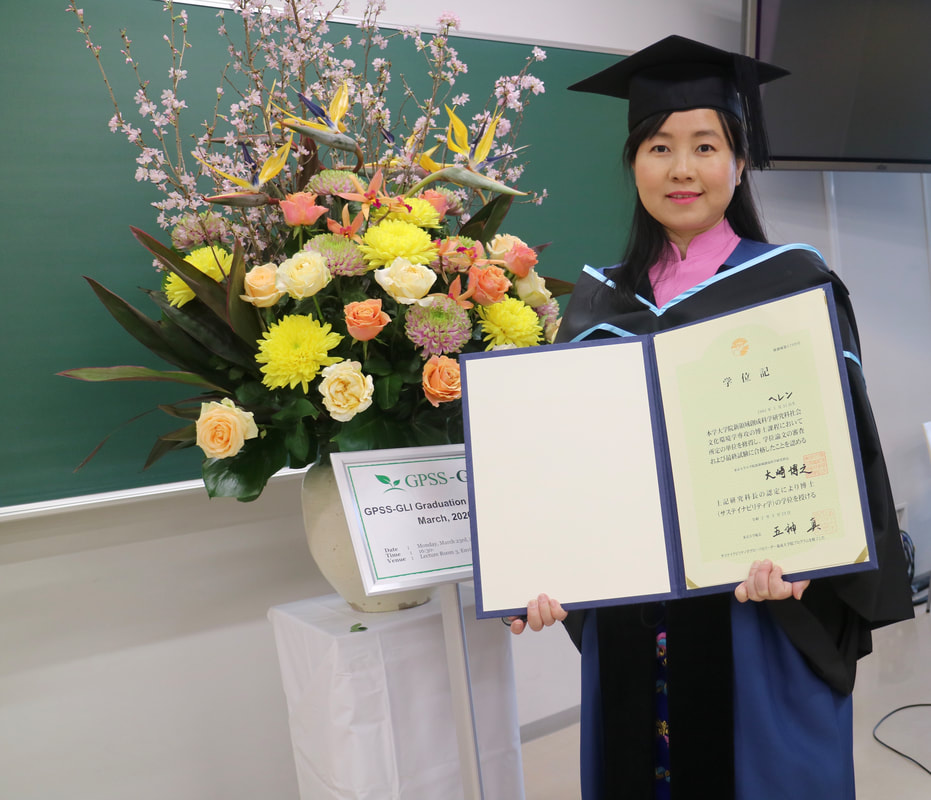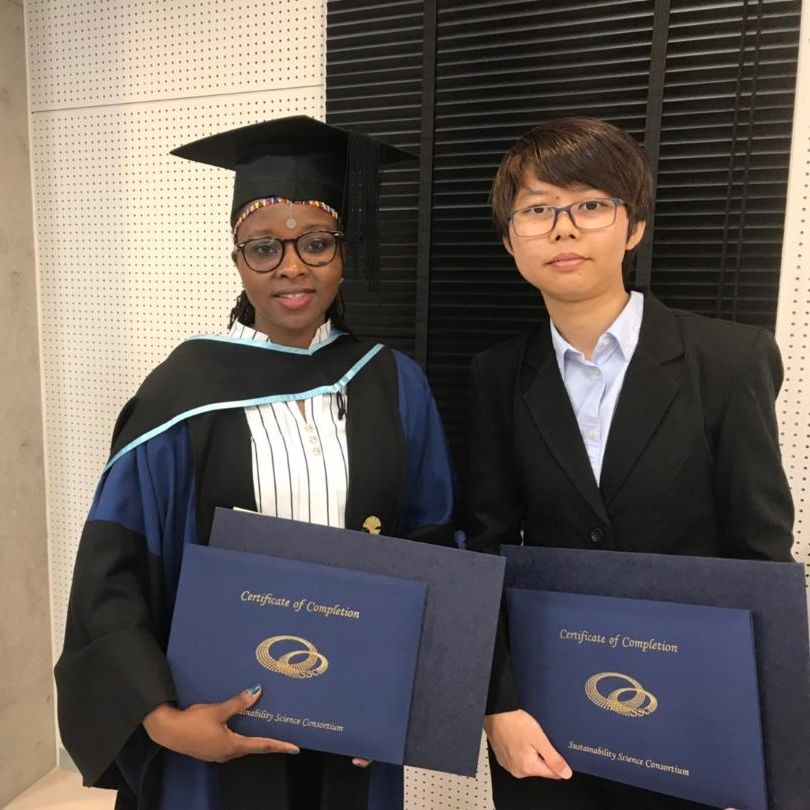|
The Institute for Future Initiatives (IFI) and the Global Carbon Project (GCP) coordinated a joint symposium on “Tracking GHG emission at the sub-city level: methods and implications for meeting the Paris Agreement and catalyzing decarbonisation”. The symposium was held on 20 November at the Sanjo Hall of the University of Tokyo. It brought together academics from different research organisations in Japan, USA, China, Taiwan, and Thailand, as well as urban practitioners from Japan. Collectively the participants discussed different approaches for quantifying GHG emissions at the sub-city scale for different economic sectors, and their policy implications. The first session featured presentations from the academic partners of an international research project funded by the Asia Pacific Network for Global Change Research (APN). Peter Marcotullio from the City University of New York presented residential energy use projections for the New York City metropolitan area. Subsequently, Zhihui Li from the Chinese Academy of Sciences outlined the characteristics and ramifications of industrial transformation in the Beijing-Tianjin-Hebei region of China, and how it could be possible to promote low carbon urbanization. Mr. Poju Huang from the National Taipei University presented his research on the CO2 emissions of different building types in Taipei using the emergy approach. Finally, Subina Shrestha from the Asian Institute of Technology (AIT) outlined a GHG inventory for the Bangkok Metropolitan Region and the driving forces behind emission changes over time. The second session comprised of researchers affiliated with the Global Carbon Project (GCP) and based at the National Institute of Environmental Studies (NIES), Japan. Peraphan Jittrapirom outlined the structure of the GCP and its main activities, especially related to interdisciplinary research. Yoshiki Yamagata presented a spatially explicit carbon map of Tokyo, and outlined some emerging methods anchored on Big data and Artificial Intelligence (AI) to realize climate-resilient and decarbonised urban areas. Takuro Kobashi summarised the research approach and goals of a new international and interdisciplinary project seeking to catalyse deep and rapid decarbonisation in Kyoto, Shenzhen and Berkeley. Finally, Takahiro Yoshida discussed how GeoDesign can be used as a tool to support urban decarbonisation, using examples from the application of some novel techniques in the Kyojima district of the Sumida ward in Tokyo. The main themes outlined across the different presentations were discussed by a panel of urban practitioners and academics. The panel comprised of Dr. Noriko Kono (PADECO Co. Ltd.), Prof. Peter Marcotullio (City University of New York), Dr. Yuko Nishida (Renewable Energy Institute), Dr. Giles Sioen (Future Earth Japan Global Hub) and Dr. Yoshiki Yamagata (Global Carbon Project), and moderated by Dr. Peraphan Jittrapirom. The discussion focused on the importance of data collection at the sub-city level and how it can lead to policy change. Issues of data reliability, local knowledge, cost-effectiveness, interdisciplinarity, science-policy interface and framing where discussed by all participants. Following the end of the panel students from the University of Tokyo showcased their research in posters and received constructive comments from speakers and other participants during the closing networking event at the symposium. The full agenda of the event can be found here. More information about the APN project can be found here. More information about the Global Carbon Project can be found here. Alexandros Gasparatos and Eric Dompreh attended the event celebrating the 10 years of the Belmont Forum (Taipei, 21-22 October). They participated in two panels sharing their experiences from the their involvement in the Belmont Forum project FICESSA. Alex participated in the panel discussing how to build capacity to inform policy, guide decision-making, and encourage best practices. Eric contributed to the panel on how to train the cohort of the future in transdisciplinary research. For more information on the event refer here.
Denise visited Santa Cruz de la Sierra in Bolivia to collect data about solid waste practices among residents and informal waste pickers. In particular she conducted approximately 300 household surveys to understand the causes and impacts of different solid waste practices such as waste dumping, burning and separation. These surveys were undertaken in randomly selected areas that represented different socioeconomic strata. Additionally, she conducted around 100 surveys with informal waste pickers to understand the characteristics and socio-economic impacts of informal waste-picking activities. These interviews were undertaken in waste collection points (e.g. markets, waste containers, streets), storage points (e.g. association warehouses, municipal separation plant) and selling points (e.g. facilities of small and medium intermediaries).
Eric visited the oil palm production areas located in the Mpohor district of the Western region of Ghana. He interviewed oil palm and food crop farmers to understand the impact of certification on farmer livelihoods and food security. He focused on three groups of farmers located in six local communities. These included 100 certified oil palm farmers belonging to the smallholder scheme of Benso Oil Palm Plantation (BOPP), certified through the Roundtable on Sustainable Palm Oil (RSPO). He also interviewed 100 non-certified oil palm farmers and 100 food crop farmers operating in the same area. Vinamra visited three Forest Management Units (FMUs) in Sarawak, Malaysia, namely the Mujong-Melinau FMU (44,300 ha), Kapit FMU (149,765 ha) and the Raplex FMU (63,993 ha). He undertook interviews and focus group discussions in many longhouses to understand the effects of different logging practices on the environment and the livelihoods of local indigenous Iban communities. Furthermore, he attended the Social Impact Assessment Training for FMUs organized by Sarawak Forestry (Kapit FMU, 18-21 September) and the MTCC 20th Anniversary Conference (Kuala Lumpur, 24 September) during which he met with key stakeholders from the Ministry of Primary Industries, the Global Forestry Service, and the Malaysian Timber Certification Council. Alice and Ei were awarded their PhD and MSc respectively. Both defended successfully their theses in July 2019. Cogratulations!!
|
AuthorAlexandros Gasparatos Archives
September 2023
Categories |


 RSS Feed
RSS Feed

